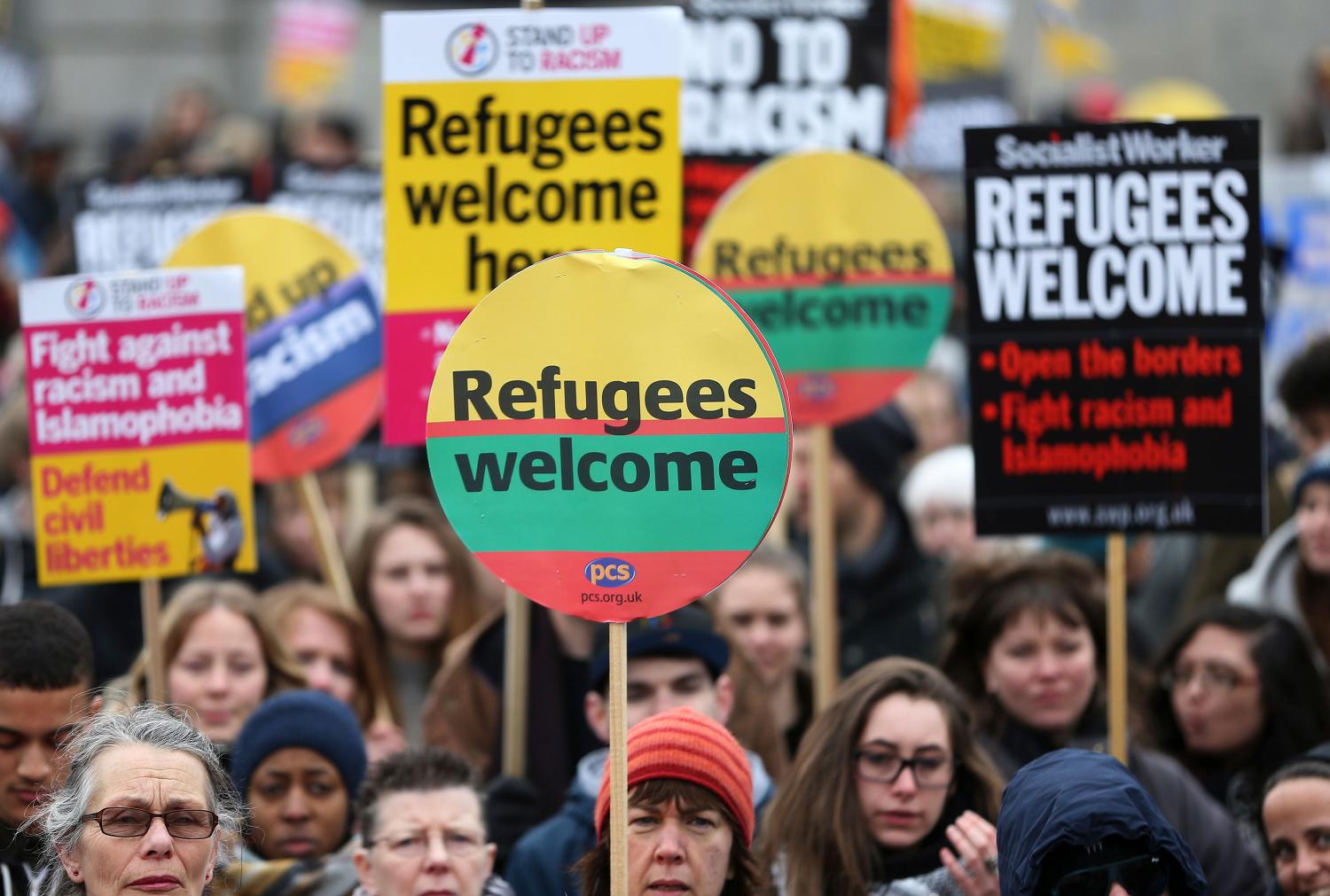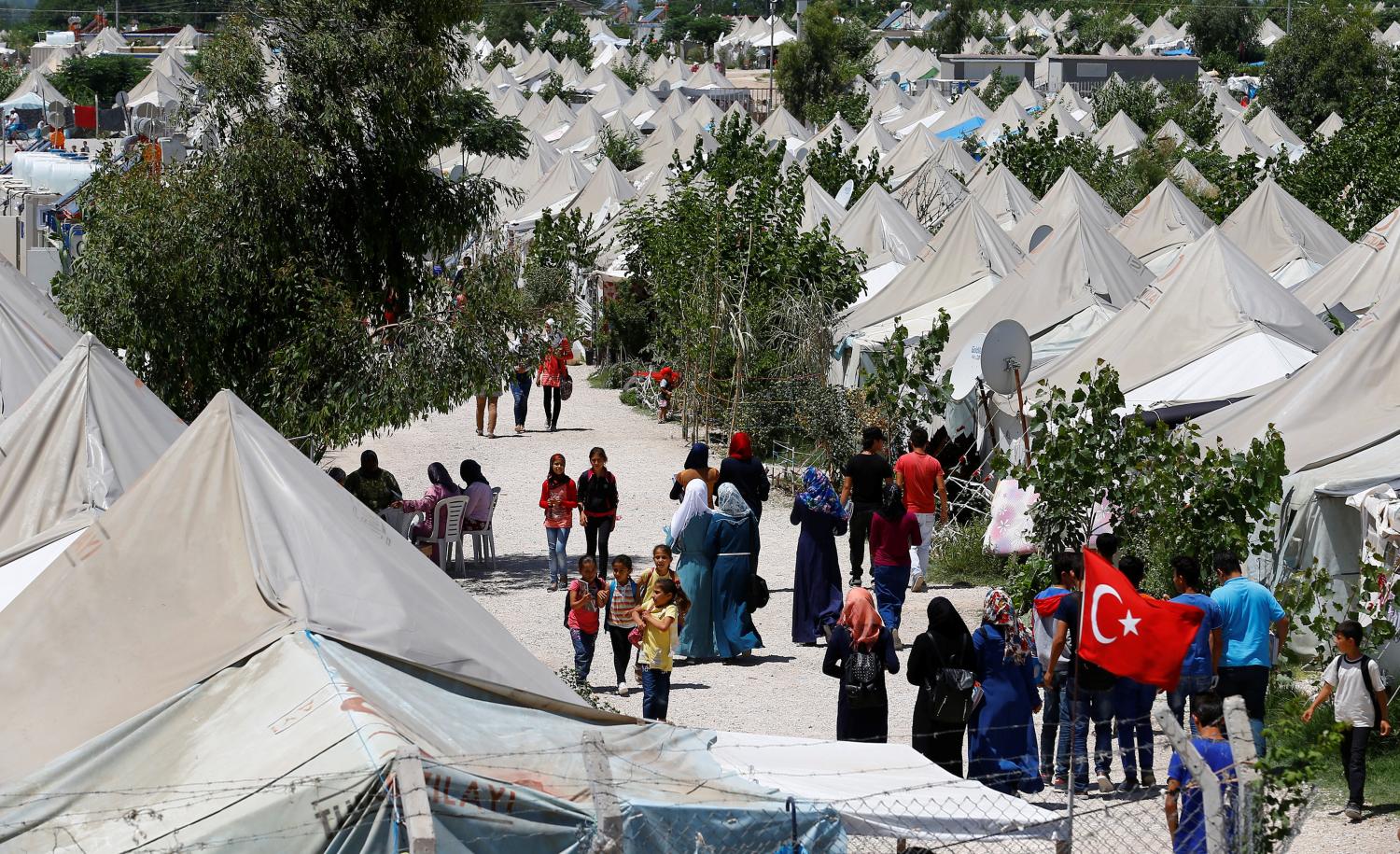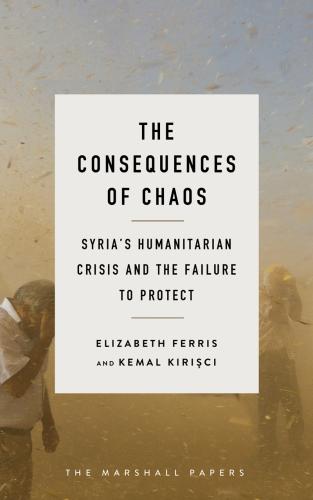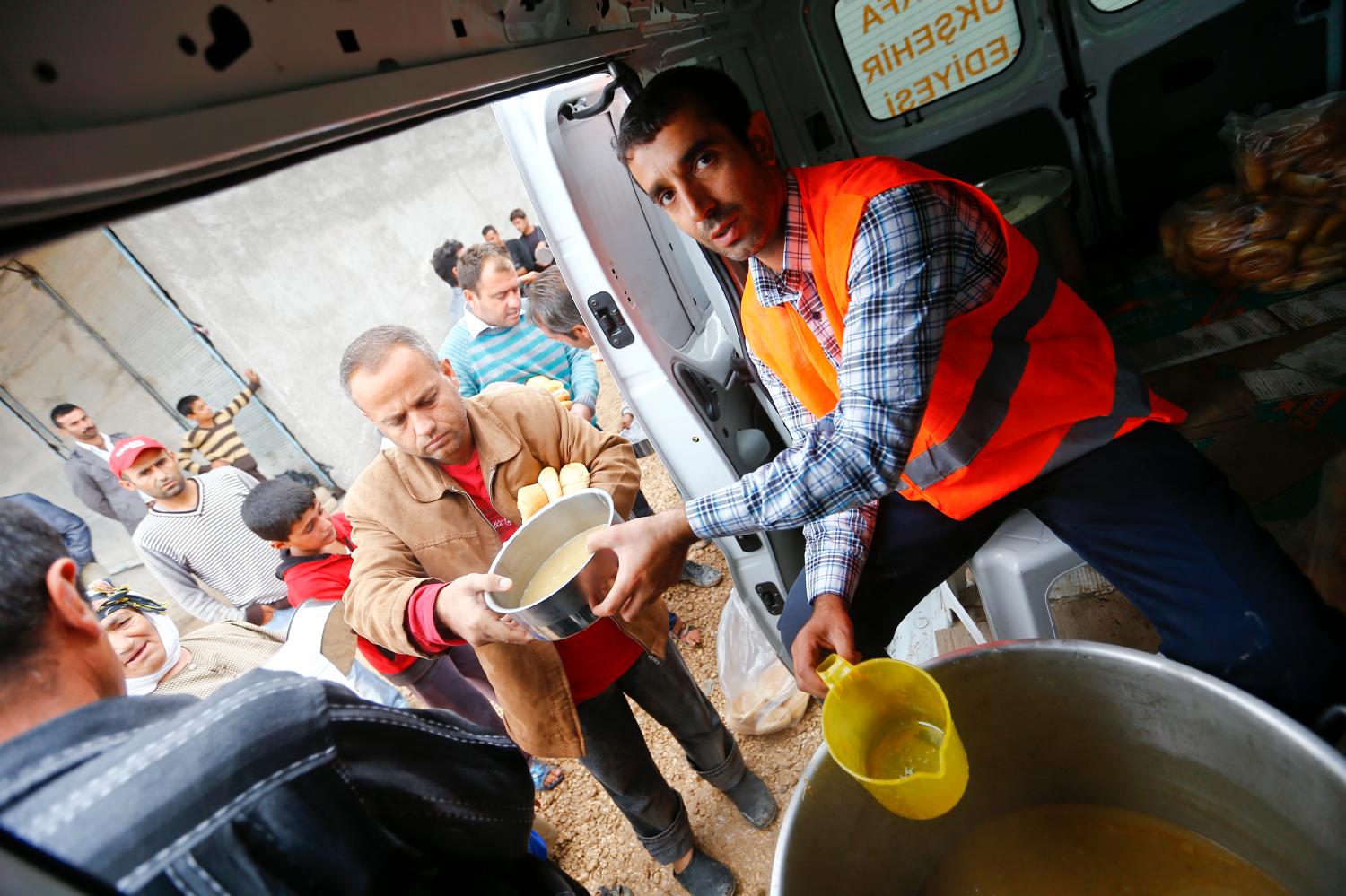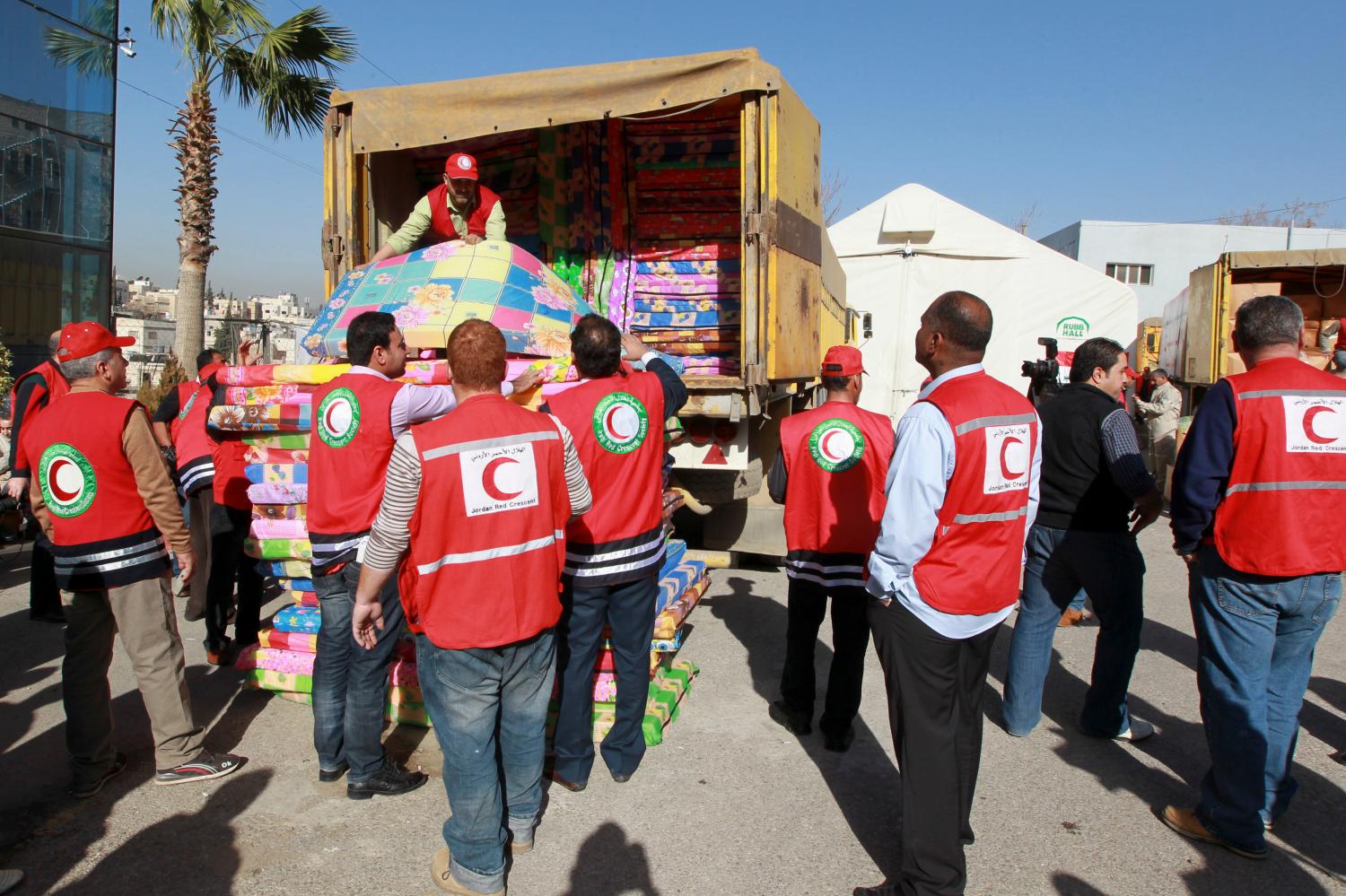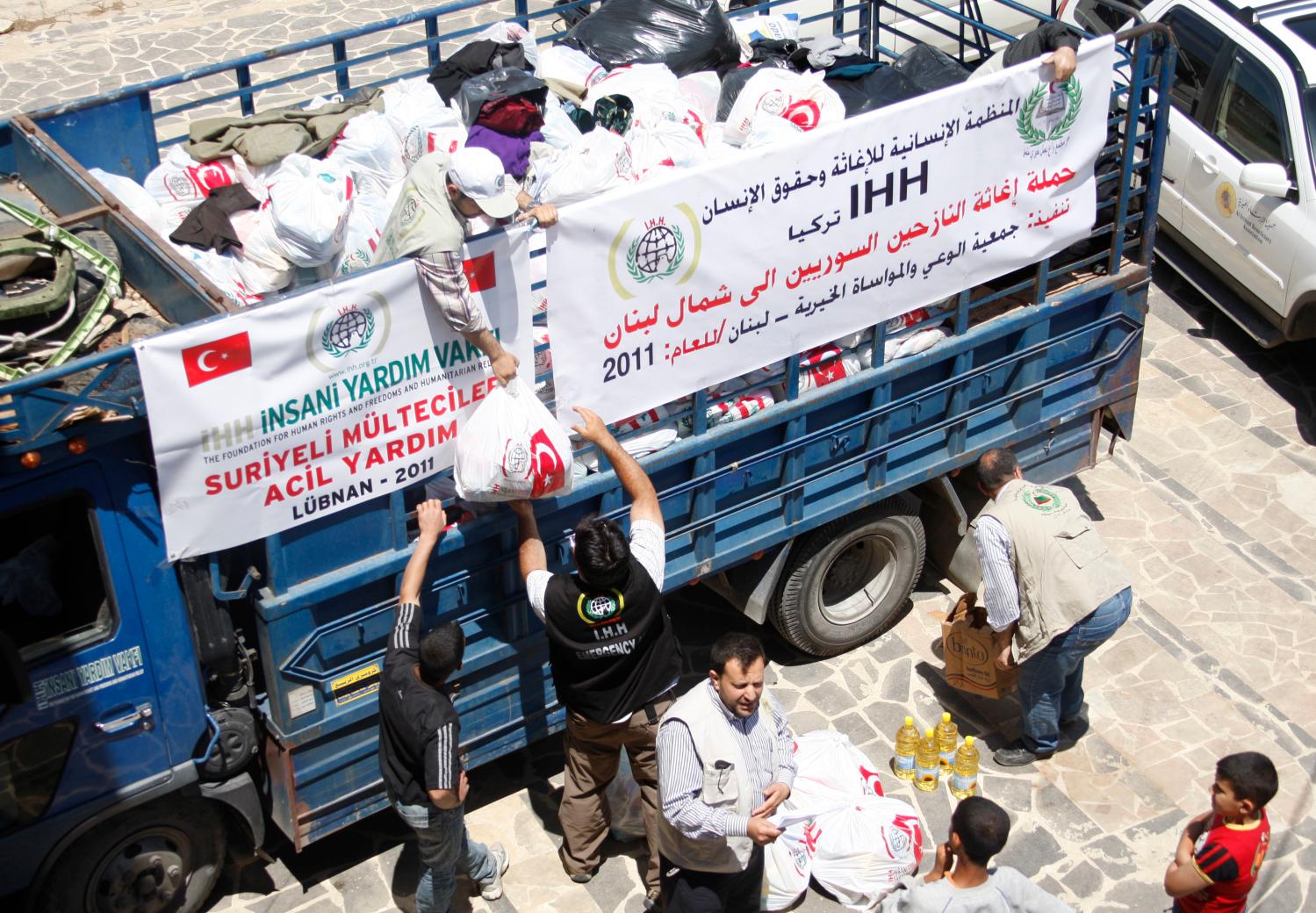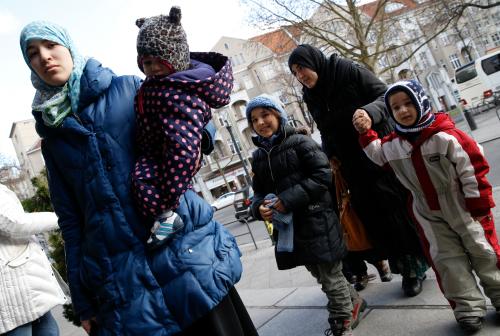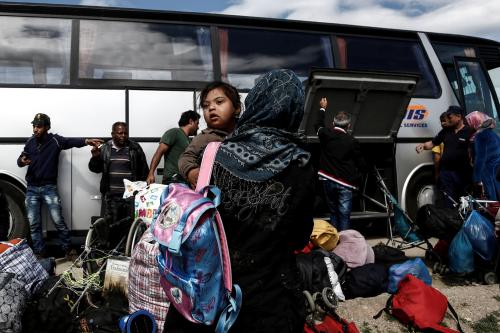Executive Summary
On September 20 at the United Nations in New York, President Obama convenes a Leaders’ Summit on the Global Refugee Crisis. This follows the Secretary-General’s High-Level Summit on Refugees and Migrants the day before. These two meetings offer the Obama administration a unique opportunity to galvanize action to address the global migration and refugee crisis.
The Obama administration has announced three goals for the Leaders’ Summit. The first is to generate a 30 percent increase in financing for global humanitarian appeals, from $10 billion in 2015 to $13 billion this year. The second is to double the number of resettlement slots and alternative legal pathways for admission that are available to refugees, and increase the number of countries accepting significant numbers of refugees. And the third is to increase the number of refugees in school worldwide by one million and the number of refugees granted the legal right to work by one million.
These are the right goals: they are both ambitious and attainable. This paper—jointly produced for the Brookings Institution and the Richard C. Holbrooke Forum at the American Academy in Berlin—lays out specific ideas about what the United States needs to do in order to achieve them at the September Summit.
To mobilize support for its goals, the United States should:
- Build a coalition for the resettlement of refugees, starting with an increase in its own intake. Admitting 65,000 of the most vulnerable Syrian refugees would allow the United States to lead by example and would establish a foundation on which to re-build global commitments to burden-sharing.
- Leverage support for the front-line states—Turkey, Jordan and Lebanon—by focusing on helping these countries support refugee populations in becoming more self-reliant.
There are four major reasons why the Obama administration should seize the opportunity to achieve real results in September. First, U.S. leadership should always take a stand against conscience-shocking wrongs: it is wrong for human beings fleeing carnage and destruction to be denied refuge and the chance of a new life. Second, as the Syrian civil war grinds on, with no apparent end in sight, vigorous refugee assistance and re-settlement are the best available ways for the United States to demonstrate its commitment to the Syrian people. Third, as Europe struggles to cope with refugee pressures, its leaders blame the United States for inaction. Decisive leadership on the part of the United States in September would make an important contribution toward bolstering the Atlantic alliance. Fourth, U.S. leadership refurbishes America’s reputation as a leader in refugee resettlement. Failure to secure meaningful results in September would dissipate the momentum achieved in the build-up to these summits and convince refugees that they have been abandoned.
Introduction
The current flow of human beings escaping their countries’ turmoil or seeking a better life is not a temporary surge or a passing crisis. Mass migration, accompanied by sudden surges of people, will be a permanent challenge to 21st century states and world order. Well-managed, legal migration offers benefits for both sending and receiving countries. For sending countries, the remittance income—already estimated at $600 billion annually—is the single most important income stream flowing into the emerging economies of the global south. For receiving countries, migration has already become the most important source of demographic growth and renewal for wealthy societies.
While migration has clear benefits, recent surges of refugee and asylum claimants are testing the capacity of states and eroding traditions of welcome in receiving countries for refugees and migrants alike.
After initially welcoming refugees in September 2015, European states are now rolling out the razor wire, refusing to share resettlement burdens and failing to take action that could help reduce the number of refugees drowning in the Mediterranean.
Terrorist incidents in Europe have made European citizens more reluctant to accept refugees. These fears, coupled with domestic political upheaval, have rendered several European states less willing to welcome refugees and have raised new questions about the long-term viability of European unity. Greece already hosts nearly 60,000 refugees in deteriorating conditions, and Italy is struggling to cope with a rising tide of arrivals from the central Mediterranean route. Hostility toward migration and fears that Britain is losing control of its borders drove up the vote in favor of a British exit from the European Union. The Turkey-EU deal signed in March reduced refugee flows into Greece, but in the wake of the Turkish coup attempt in July, the deal may collapse if the EU turns down Turkish demands for visa-free access.
America has prided itself on its generous and humane international refugee policy. It has been a leader in refugee resettlement and integration and the leading donor to international refugee organizations. This influential and admirable role would be jeopardized if the administration allows security fears over recent terrorist incidents to dictate resettlement policy.
U.S. leadership should always take a stand against conscience-shocking wrongs: it is wrong for human beings fleeing carnage and destruction to be denied refuge and the chance of a new life.
The September Summit at the U.N. offers the Obama administration an opportunity to make progress toward repairing the damage that the refugee crisis has done to transatlantic relations. Many Europeans feel the Americans have been bystanders to the refugee crisis, failing to take a fair share of refugees and failing to craft strategies that would bring the Syrian conflict to an end. American policymakers, for their part, have been critical of European disunity and division in the face of the refugee challenge. Clearly, both the United States and Europe need each other in order to address the crisis. The longer it goes on, the more damage it will do to the long-term capacity of Europe and America to work together on other issues.
In February 2016 the Richard C. Holbrooke Forum at the American Academy in Berlin joined together with the Brookings Institution to convene a meeting of experts in forced migration and refugee issues, together with senior leaders from the American and German government.
This report, prepared for the Brookings Institution and the American Academy in Berlin by a research team at the Harvard Kennedy School, under the direction of Professor Michael Ignatieff, one of the co-conveners of the Holbrooke Forum, builds on that discussion with two specific policy recommendations for the U.S. government.
Recommendation one: Build a coalition for refugee resettlement
In October 2015, the Obama administration raised the annual cap on refugee admissions from 70,000 to 85,000—to include at least 10,000 Syrians—with a proposed ceiling of 100,000 in FY2017. Until mid-summer 2016, the United States’ limited screening resources restricted admissions to about 200 Syrians each month. Responding to criticism of the slow pace of refugee resettlement, in 2016 the administration scaled up operations in Jordan, Lebanon, and Iraq, which included a “surge” of U.S. Citizenship and Immigration Services (USCIS) interview staff sent to Jordan and Turkey. In February, the Department of State granted Syrians eligibility for priority processing that allows applicants with family members already in the United States to skip the wait for a U.N. High Commissioner for Refugees (UNHCR) referral. By the end of August, the surge had proven successful, with the administration announcing it had reached its 10,000 target.
This successful surge demonstrates that the administration can scale up operations to meet its goals. While this modest target indicates a sincere commitment, it is dwarfed by the commitments that front-line states have already made and by America’s own historic commitment to refugee resettlement.
Taken together—the imminent collapse of the Turkey-EU deal, the growing pressure on front-line states such as Lebanon and Jordan, the rising number of drownings in the Mediterranean, and the steady increase in arrivals to Italy—it is becoming imperative for the United States, Canada, Australia, and countries in Latin America with a record of accepting refugees to respond.
If the United States’ stated goal is to double the resettlement of refugees among member states, it needs to resettle more refugees itself. Once the United States has demonstrated its own commitment, it will be better positioned to extract commitments from other countries.
In addition to the 100,000 refugees from around the world that the United States has committed to accept in 2017, it should commit to select, screen, and accept 65,000 additional Syrian refugees currently in Turkish and Jordanian camps for resettlement in the United States in 2017. The 65,000 in question are those that the UNHCR has identified as among the most vulnerable—women and children in families broken apart by war, together with individuals traumatized by injury, violence, or torture who cannot receive adequate rehabilitation in refugee camps and need to be given a chance at a new start in safety. This would raise the overall total of refugees that the United States accepts per year to 150,000, at an additional estimated cost of about $700 million. By announcing a commitment of this magnitude in New York later this month, the United States would be sending a message of solidarity to the Syrian people, to the front-line states, and to U.N. members who have, so far, failed to shoulder refugee burdens.
To build a coalition of resettlement countries, the United States should target states who traditionally have not taken many refugees, including several in South America and the Gulf, and Muslim-majority countries in South Asia. Every refugee that can be resettled outside of Europe by this U.S.-led coalition reduces the drownings in the Mediterranean and the pressure on Europe.
While it is clear that refugees admitted to the United States have not been responsible for acts of terrorism, the U.S. public will have to be reassured about the security implications of a commitment to the Syrians most in need of resettlement. The following measures would allow the United States to rapidly resettle 65,000 refugees without compromising its national security:
- Consolidate screening personnel in front-line states. By consolidating the screening process abroad, the United States can avoid transferring documents and lengthy delays. When security, medical, and customs officials are co-located with the populations they are screening, multiple examinations and interviews can be completed on the same day. Forward-deployed screening personnel allowed the United States to rapidly and securely screen over 10,000 Syrian refugees in 2016, a nearly tenfold increase from the year before. Likewise, the Canadian government, who will partner with the United States at the U.N. Summit, was able to resettle 25,000 Syrian refugees in four months by sending several hundred screening personnel to the front-line states.
- Streamline security and medical processing. More processing should be done in parallel. For example, medical screening should begin at the same time as security screening so that lengthy medical tests can be completed without causing delays. Medical screening should be contracted out to selected local clinics where the refugees can go directly. This will reduce the burden on U.S. government staff and the backlog of refugees waiting for medical clearance.
- Introduce new digital tools to speed up the adjudication process. USCIS and the Department of State have already developed a suite of digital tools, including the modernized immigrant visa (MIV), to increase the efficiency of the adjudication process. The U.S. Digital Service, a team within the federal government that uses technology to improve access to government services, can work across agencies to support the creation of a secure and efficient digital screening process for Syrian refugees.
Recommendation two: Leverage support for front-line states
President Obama’s Leaders’ Summit will enable the United States to translate the pledges made by states at recent donor conferences into reality. The United States has fulfilled its pledge to deliver $5.6 billion to Middle Eastern refugee relief since 2011, making it the largest single donor. This record gives it commanding authority to persuade other states to honor their pledges.
The Summit should close the gap between pledges and actual disbursements. At the Supporting Syria and the Region donor conference in London in February, contributing states pledged more than $10 billion in aid. They focused their attention on the needs of front-line states and the refugees they host, earmarking aid for access to education and economic opportunity. At their annual joint meeting with the International Monetary Fund (IMF) in March, the World Bank approved a financing model of $100 million intended to create 100,000 jobs for Jordanians and Syrian refugees living in Jordan.
The World Humanitarian Summit held in Istanbul in May brought together over 9,000 representatives from governments, civil society, academia, and the private sector. The Istanbul meeting resulted in a reported 1,500 commitments in total, which the U.N. has vowed to track on a “Commitments to Action platform.”
Despite these promises and pledges, the Syrian Crisis Fund, which is supposed to finance the internationally agreed humanitarian response plan and the regional refugee and resilience plan (3RP), is only 41 percent funded. Only $3.1 billion has been delivered of the required $7.7 billion. At the Summit, the United States should work to leverage past promises into concrete funds earmarked for the Syrian Crisis Fund.
In Jordan, UNHCR calculates a funding gap of $613 million as of 2016, out of the $1.12 billion deemed necessary to support refugees in Jordan in the short-term. As of late 2015, 86 percent of Syrian families in Jordan are now food insecure or vulnerable to food insecurity, compared to 48 percent in 2014. In Lebanon, the absence of camps has driven most refugees into makeshift conditions or abandoned buildings. Seventy percent of Syrians in Lebanon now live below the Lebanese extreme poverty line of $3.84 a day.
The United States should increase its already substantial contributions but, most of all, it should use the Summit in September to leverage contributions from other wealthy countries, including Japan, the Gulf states, and Saudi Arabia. Two permanent members of the Security Council, China and Russia, need to contribute at a level commensurate with their international influence. The United States could gain the support of these nations by linking their cooperation on refugee resettlement with other issues of interest. For example, both Russia and China are concerned about terrorism originating in Syria, and they might fund refugee programs in front-line states in exchange for increased intelligence sharing on threats of violent extremism.
The overall goal of humanitarian assistance should be to increase the self-reliance of refugees and their families.
As the Obama administration rightly argues in its outcome goals for the Summit, the aid needs to be disbursed in such a way as to make it easier for the host states to relax restrictions on access to education and the labor market for refugees. The overall goal of humanitarian assistance should be to increase the self-reliance of refugees and their families, especially in cases where their stay in front-line countries is likely to be protracted.
Turkey
The Turkey-EU refugee deal, concluded in March 2016, has been thrown into question by instability and repression in Turkey following the failed military coup in July. It is now unlikely that the EU will honor its commitment to visa-free access to the EU for Turkish citizens. If this commitment breaks down, it may jeopardize both EU humanitarian assistance to Turkish refugee relief efforts as well as Turkish actions to control refugee flows into Europe. At the same time, the attempted military coup and its aftermath have shaken the NATO alliance and complicated U.S.-Turkish relations. This is the moment, difficult as it is, when a U.S. commitment to assist Turkey in its refugee integration and resettlement efforts might help to stabilize the broader U.S.-Turkey relationship and set it on a new course. If possible, the United States should seek to persuade the government of Recep Tayyip Erdogan to maintain the EU-Turkey deal that has stabilized refugee inflows into Europe. The United States can use financial commitments to refugees on Turkish soil in order to encourage Turkey to open up its labor markets further to allow refugees to work and to expand its programs for refugee children to go to school.
Jordan
The Government of Jordan, in partnership with the U.N., donors, and nongovernmental organizations (NGOs), has recently produced a three-year refugee response plan (“Jordan Response Plan to the Syria Crisis 2016-2018”). The JRP 2016-2018 lays out a comprehensive plan to move from a crisis response framework to a resilience-based approach. While the international community has supported this plan, total financial commitments to date total only 8.9 percent of the $2.67 billion required to implement it.
Increased financial and political support for the JRP is crucial to its success. In particular, Jordan has indicated that it will be able to develop 200,000 job placements suited for Syrian refugees, and that this total could be increased if donor countries increase their financial support for five development zones across the country in which Jordan plans to invest. The United States has already lowered tariffs on Jordanian goods and it should encourage its allies to do the same in order to improve the capacity of the Jordanian economy to provide employment for refugees and their own citizens.
Lebanon
Lebanon hosts the highest number of Syrian refugees per capita. In contrast to Jordan, Lebanon’s political dysfunction and lack of institutional capacity make it ill-prepared to provide suitable support for refugees. Furthermore, negative public and political attitudes toward refugees make a focus on long-term planning and resilience challenging. Any long-term planning and development the government might do on behalf of refugee populations—rather than needy Lebanese—is seen as politically toxic. No amount of external pressure will change this political reality.
Lebanon’s policy of discouraging refugee documentation compromises aid and service delivery to these populations. In May 2015, at Lebanon’s request, UNHCR stopped registering new refugees. High fees (approximately €180 per adult) for the renewal of legal refugee residence status encourage refugees already in-country to become undocumented. As a result, many refugees are undocumented and lack access to humanitarian assistance. In 2015, 89 percent of Syrian refugees in Lebanon reported lack of food, or money to buy it, in the previous 30 days.
Successful support for Syrian refugees in Lebanon will need to work around, not through, government channels. This support can be implemented in two major ways:
- Direct grant-making to trusted local NGOs. Direct grant-making to legitimate NGOs on the ground avoids political complications and channels the money directly to organizations equipped to implement programming. While legitimate local NGOs are not plentiful, organizations like Basmeh & Zeitooneh are well-respected and have the capacity to implement increased refugee support programming.
- Partnerships with the private sector. The Middle East Investment Initiative, a non-profit organization focused on sustainable economic growth, has developed a Middle East Recovery Plan focused on partnerships and favorable loan structures with local private sector companies. This approach is promising in that it connects available funding directly to companies who can employ those in need. Donor companies could set up grant programs that specify a certain quota of refugee employees.
Lebanon’s political situation makes aid delivery and refugee support difficult, but not impossible. Donor countries should work with local NGOs and private companies to support high-need areas by helping to provide food and water, education, and employment opportunities.
Conclusion
The United States has reasons of conscience and reasons of state to act now to take its fair share of refugees and to leverage full funding for the front-line states. Moving beyond the September Summit, the incoming U.S. administration will have a challenging agenda: it must work with its NATO partners to help stop the unconscionable drownings in the Mediterranean, to bring stability to Libya, and to use a combination of military pressure and diplomacy to bring the carnage in Syria to an end.
Europe, in its turn, must transition from unilateral border protection measures toward a thoroughgoing strategic engagement with the societies on its Mediterranean frontier. Specifically, Europe should work with its Mediterranean neighbors to contain uncontrolled migration flows, while also developing legal temporary migration streams to address its own demographic deficits and their development challenges. In this way, the crisis can be slowly transformed into new partnerships that will address the imbalances that cause migration flows in the first place.
Finally, the larger geostrategic imperatives of common U.S. and European action on refugees and asylum need to be kept in mind. A strong and unified North Atlantic Alliance is the principal check against Russian adventurism. If Europe and the United States can improve cooperation on refugee issues, it will enhance their capacity to work together on common security challenges.
[D]emocratic leaders…must convince their electorates frightened by terrorism that generosity toward strangers is not only humane but prudent.
Forced migration and refugee policy pose enormous political challenges for democratic leaders. They must convince electorates frightened by terrorism that generosity toward strangers is not only humane but prudent. They must convince their fellow citizens that generous refugee and asylum policy, together with assistance to other states burdened with refugee flows, actually makes their country safer. We do not minimize the political challenges entailed in adopting the recommendations in this report.
The right approach in dealing with political resistance to refugee resettlement and humanitarian relief is to appeal to the generosity and hospitality of the American people. At the most basic level of common morality, it is wrong for desperate people fleeing war and persecution to drown in sight of safety; it is wrong for traffickers and criminals to flout the border controls of established states; it is wrong for states to roll up razor wire to prevent human beings from claiming universal rights those states have consented to; it is wrong for states with traditions of hospitality and generosity toward refugees to surrender these principles out of fear. A just and well-ordered asylum system is a bedrock of international morality and a critical guarantee of international peace. Since the end of World War II, Europe and the United States have led the way in defending and extending rights for refugees. It is time—even past time—for them both to return to these great traditions. The high-level meetings in New York offer the United States a moment to seize: to re-affirm traditions of welcome, generosity, and solidarity that have made the world and the United States a safer place.
The Brookings Institution is committed to quality, independence, and impact.
We are supported by a diverse array of funders. In line with our values and policies, each Brookings publication represents the sole views of its author(s).



